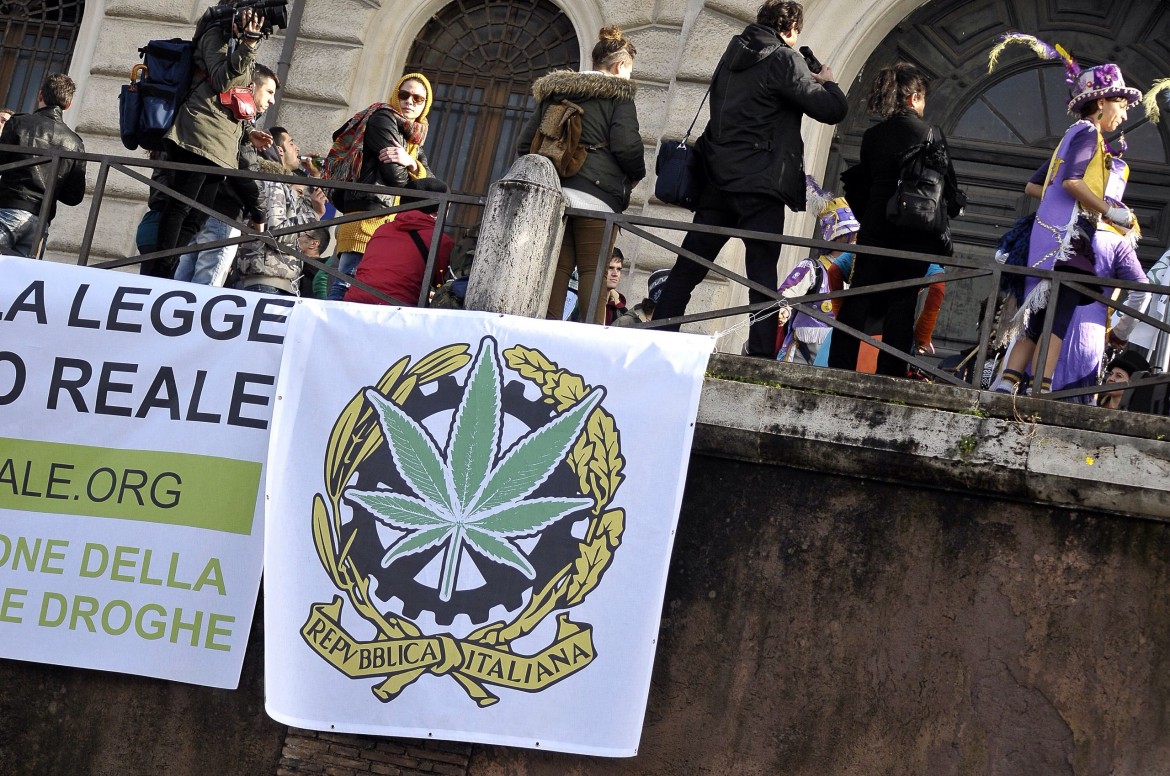Letter
When social problems are treated like a crime
At least 30,000 inmates are in prison because of a law that punishes a victimless crime, and which itself produces victims.

This year marks the 25th anniversary of the founding of Forum Droghe, one of the NGOs promoting the White Paper on Drugs together with the Società della Ragione, which has been fighting on the side of the resistance in the battle against punitive and prohibitionist ideology, with the promotion of alternative messaging, legislative proposals, mobilizations of civil society, studies, research, seminars, conferences, books: a heritage that is still the basis for action and demands nowadays.
The data that we present in this White Paper, as per tradition, is for the previous year, 2019, and confirm a trend that has now stabilized. Thirty percent of those entering prison are there because of violations of Art. 73 of Presidential Decree 309/90, and of the 60,769 inmates across Italy as of Dec. 12, 2019, almost 25% have been imprisoned for these crimes: drug possession or drug trafficking. In absolute terms, this concerns more than 14,000 people.
As far as the inmates classified as drug addicts, the numbers are equally impressive: more than 36% of the inmates being incarcerated were addicts, together with almost 28% of those already in prison; in absolute terms, we are talking about almost 17,000 people.
If we add the number of those imprisoned for violating the unified law on narcotics to the habitual drug users who have entered prison for another crime linked to their lifestyle and to their marginalization, we can say with certainty that more than 50% of those who enter prison do so in connection with a social issue that has been interpreted as a criminal act.
At least 30,000 inmates are in prison because of a law that punishes a victimless crime, and which itself produces victims, forcing them into the inferno of pointless imprisonment.
We have said many times that if we were to be consistently applying the principle of imprisonment as a last resort, we would not have prison overcrowding and we could guarantee acceptable living and sanitary conditions for those who still had to be imprisoned.
We could thus concentrate on the difficult challenge of implementing the goal of re-education for those who have committed serious crimes against persons, or as part of criminal organizations, and not waste time with what Alessandro Margara has called “social detention.” The simulation that we present again this year of what prisons would look like without prisoners for drug crimes and without prisoners classified as “drug addicts” speaks volumes.
The burden of narcotics trials on the justice system is a situation that remains highly alarming, and, while the trend towards an increasing prevalence of alternative sentences is confirmed, there is also an increased tendency to include prison time for addicts—the “alternatives” are prevalently set up in this way, even if the sentences are short or very short. Faced with this situation of senseless repression prior to the outbreak of the pandemic, Minister Lamorgese went even further and proposed arrest even for those responsible for minor offences. The police statistics for the number of those charged with drug use alone, a number that has now reached 1,312,180 people (a scandalous number, of whom most are young people) since 1990, describes an explosive situation, since these people risk heavy and stigmatizing administrative sanctions.
This is a mass criminalization that for the most part—almost a million people—concerns the consumption of cannabinoids. If far-reaching reforms are not implemented, starting with a decriminalization of the consumption of all substances and the legalization of cannabis, we will not be able to get out of the black hole into which we have been pushed by the merchants of fear and the populist abuse of criminal justice. As the government is missing in action, we will meet in Milan for a Conference that will be self-managed and start from the grassroots level.
*The “White Paper on Drugs,” promoted by La Società della Ragione, Forum Droghe, Antigone, CGIL, CNCA, Associazione Luca Coscioni, ARCI, Lila and Legacoopsociali, with the support of A Buon Diritto, the Community of San Benedetto al Porto, Funzione Pubblica CGIL, Gruppo Abele, Itardd and ItanpuD, is available in paper version at all bookshops and online retailers, and can be consulted on the website of Fuoriluogo: www.fuoriluogo.it/librobianco.
The white paper was presented in an online webinar on Friday, June 26, at 3pm: more info at www.fuoriluogo.it/librobianco26giugno.
Originally published at https://ilmanifesto.it/quando-i-problemi-sociali-sono-trattati-come-un-reato/ on 2020-06-26
